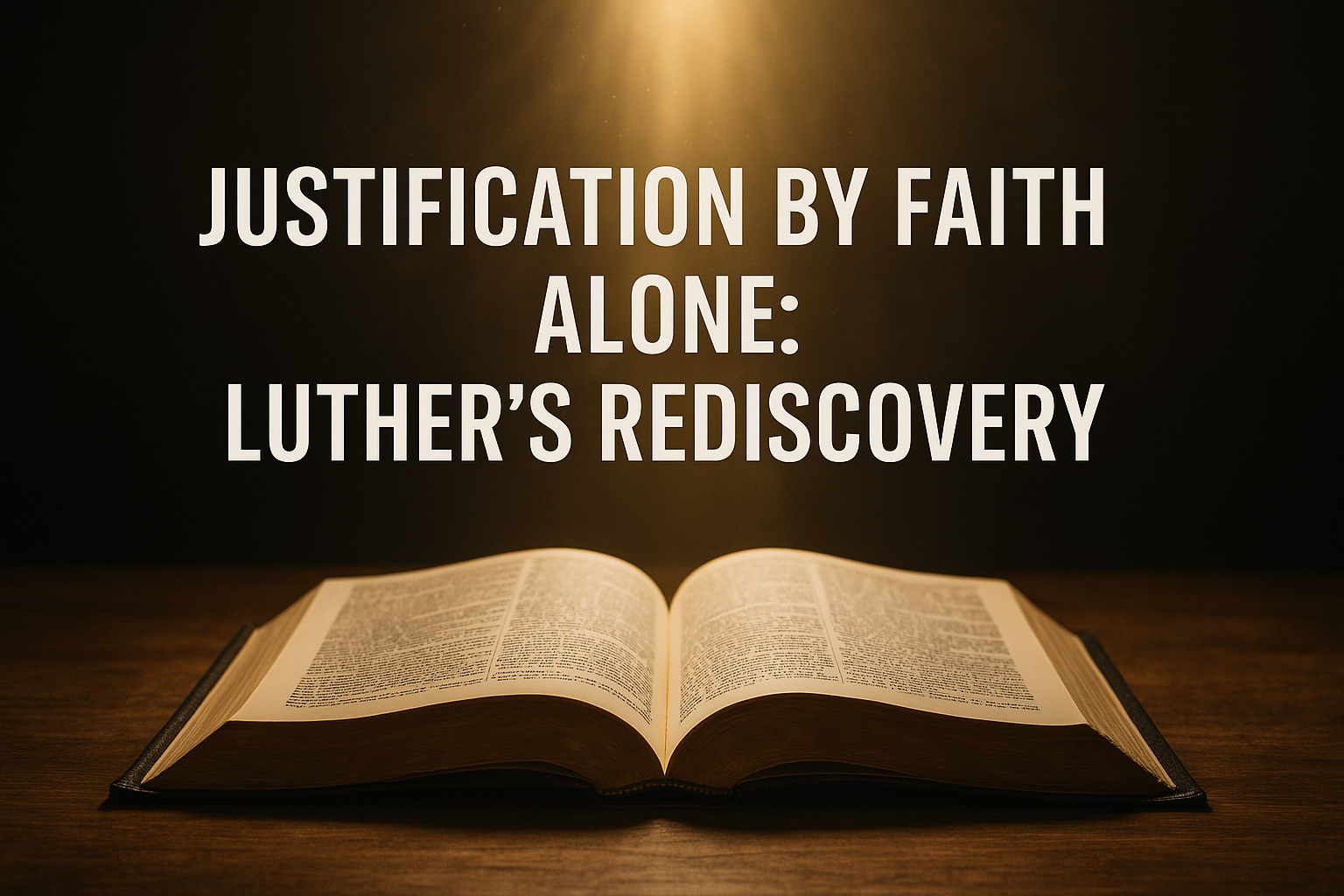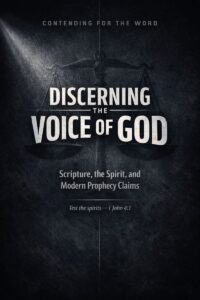⏱️ Estimated Reading Time: 5 min read
Justification by Faith Alone: Luther’s Rediscovery
Always Reforming: Fidelity to God’s Word in Every Generation
By James Williams
How can sinners enter the presence of a holy God and hope to live eternally with Him? How good must we be to be “good enough” for heaven? These questions were at the heart of the Reformation, and they remain the most important questions every human being must answer. At the center of the gospel is the good news that sinners can stand before God, not because of their works, but because of Christ alone.
The Reformation and the Gospel
In the sixteenth century, the church was plagued by corruption. Among the most notorious abuses was the sale of indulgences. For a small fee, people were promised forgiveness of temporal punishment for sin, or even the release of deceased loved ones from purgatory.
Underlying this practice was the Roman Catholic teaching of a “treasury of merit.” It was believed that Mary and other saints had stored up so much goodness that the excess could be applied to others. The Pope, viewed as Peter’s successor (Matthew 16:19), was said to hold the keys of the kingdom, determining how this goodness could be dispensed. Often, this came through visiting relics or purchasing indulgences.
Because the Bible was inaccessible in the common language, many trusted the church’s word without question. As a result, they were led to trust not in Christ alone but in a mixture of Christ, papal authority, indulgences, relics, and good works. In this perversion of the gospel, the death, burial, and resurrection of Christ were no longer the center. Yet Scripture is clear: salvation is “by grace you have been saved through faith. And this is not your own doing, it is the gift of God, not a result of works, so that no one may boast” (Ephesians 2:8–9).
Luther’s Struggle
It was into this context that Martin Luther lived as a monk. Deeply troubled by his conscience, Luther devoted himself to extreme discipline, fasting to the point of endangering his health, spending hours in confession, and seeking peace through religious rituals. Yet the harder he tried, the more he despaired of God’s righteousness and wrath.
On a pilgrimage to Rome, Luther climbed the Scala Sancta, the Holy Stairs said to be the very steps Jesus walked before Pilate. Stopping to pray and kiss each step, he hoped to secure forgiveness. But when he reached the top, he admitted, “Who knows whether it is so?” Instead of peace, his striving only deepened his uncertainty.
What Luther Discovered
As a professor in Wittenberg, Luther began teaching the Psalms in 1513. When he came to Psalm 22:1, “My God, my God, why have you forsaken me,” he struggled to understand how Christ could experience such abandonment. Slowly, he realized that Christ bore the sins of mankind, enduring the judgment we deserved.
Even more transformative was his study of Romans 1:17: “The righteous shall live by faith.” At first, the phrase “the righteousness of God” filled Luther with dread, for it underscored God’s holiness and his own guilt. But then the truth broke through. God’s righteousness is not only an attribute, it is His gracious gift, credited to sinners through faith in Christ. As Paul writes, “For our sake He made Him to be sin who knew no sin, so that in Him we might become the righteousness of God” (2 Corinthians 5:21; Romans 3:23–24; Habakkuk 2:4).
“Christ’s holiness meets the demands of the law for us. Luther realized that we are saved by sheer grace and mercy thanks to the gift of the perfections of Christ.”
— Erwin W. Lutzer, Rescuing the Gospel
Freed from endless striving, Luther rested in the finished work of Christ and spent the rest of his life proclaiming this good news, salvation through Christ alone, by grace alone, through faith alone.
What About Us?
Though centuries have passed, the battle for the purity of the gospel continues. False gospels still abound. Some add works, others promise health and wealth, and others dilute truth in the name of progress. Yet the apostle warns, “All who rely on works of the law are under a curse” (Galatians 3:10).
Like the Reformers, we must cling to God’s Word, proclaiming the gospel revealed in Scripture. Sinners are justified not by their efforts, but by Christ’s righteousness credited to them through faith. “For all have sinned and fall short of the glory of God, and are justified by His grace as a gift, through the redemption that is in Christ Jesus” (Romans 3:23–24).
The Reformers sacrificed much, many even gave their lives, to defend this message. Now it is our turn. May we boldly proclaim Christ alone, by grace alone, through faith alone, for the salvation of sinners and the glory of God alone.
References
- Roland H. Bainton, Here I Stand.
- Erwin W. Lutzer, Rescuing the Gospel.



